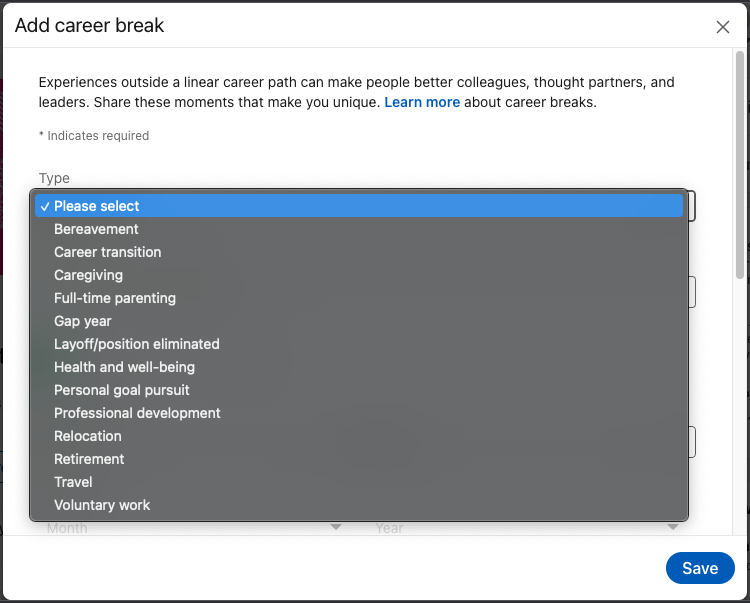
How to Navigate Career Gaps
Re-entering the workforce after a career gap can be hard. Interviewers may want to know why. But with that brings an opportunity to discuss your life, values and learnings.
LinkedIn launched their 'Career Break' profile feature on March 1 (above). It signals a more inclusive platform that considers the inevitable careers breaks and gaps on our resumes. The list of options includes reasons like 'health and wellbeing', 'caregiving' and 'layoff'.
This can help future employers better understand your career journey and how to support you professionally and personally as you transition back to work. It might seem daunting to be so open about a career break on your LinkedIn profile but it may help you find the right fit for your next role.
Many of the reasons act as a point of conversation in an interview and help you frame the gap in your CV. With this in mind, here are some tips on how to navigate the conversation of your career break (not that you owe anyone an explanation for taking time off work).
Be Open and Honest
Explaining a redundancy or relocation might be harder than taking time off as a caregiver or full-time parent. So being honest and open to discussion is the best place to start. Share only as much as you feel comfortable and be prepared with a response if you are asked why.
Adopt a Growth Mindset
Bring a growth mindset to the situation, even if the circumstances were out of your control. Challenges are a normal part of life and careers, so try to reflect on your experience, how you overcame it and what you learnt.
As cliche as it sounds, keep calm and stay optimistic.
Be comfortable with this part of your resume so that you can explain the situation confidently and openly. If the interviewer doesn't reciprocate your positivity, perhaps it might not be the right fit for you.
As Larisa, Stopgap Senior Consultant, always advices candidates "they're interviewing the client (potential employer) just as much as they're being interviewed."
You can find more job hunting tips here.

